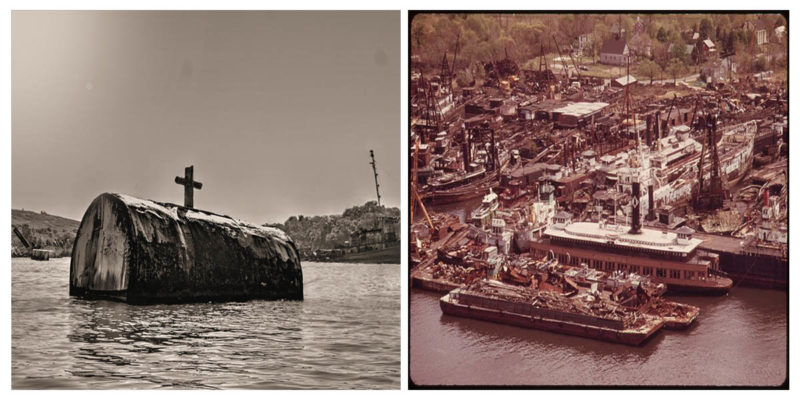It is the last voyage for some of the history’s most famous vessels. Its location, none other than the Arthur Kill also known as Staten Island Sound, in the port of New York and New Jersey.
Its purpose is a bitter one, but nonetheless, it is the natural law of the universe. All things must come to an end. And so Staten Island boat graveyard is where all of those old ferries, tugboats, and barges are brought and left.
As is customary with all cemeteries, this one has several names given by the locals. Today its official signature is a rather long one – Donjon Iron and Metal Scrap Processing Facility, but it is also known as the Arthur Kill Boat Yard, the Witte Marine Scrap Yard, or simply Tugboat Graveyard.
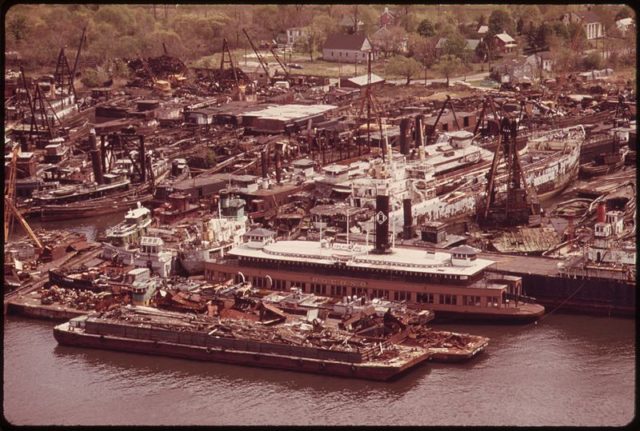
This boat graveyard came to exist because of John J. Witte, an unrelenting fellow who refused that any of the boats should be dismantled. And his mind didn’t change, right up until 1980 when he departed this world and went on his own final voyage.
Because of his determination, this graveyard today holds some honored and yet notorious boat relics such as the submarine chaser USS PC-1264, a World War Two US Navy ship that was navigated by the determinism of its predominantly African-American crew.
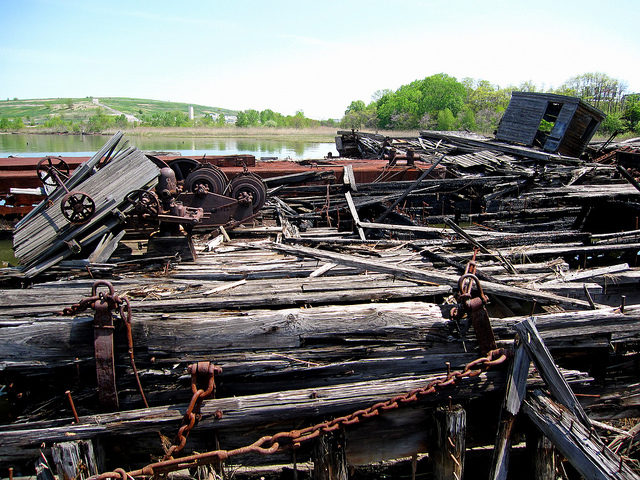
The business was taken over by John’s son in law, Joe Coyne, who passed it on to his son Arnold. Back in the days when John J. Witte ran this place, the boat graveyard had more than 400 vessels though over the years that number dropped down to 200. Inside, among the piles of metal that once had a real purpose, one can find a number of historically important relics.
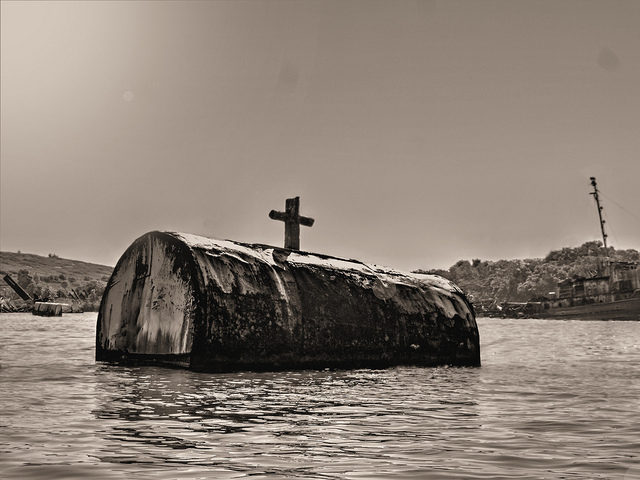
One of these is the New York City Fire Department fireboat Abram S. Hewitt that once served in the attempt to rescue passengers from the paddle steamer PS General Slocum which caught fire and sank, a disastrous pleasure trip to Long Island that ended with more than 1000 deaths.
Another historical boat relic is the New England Passenger Steamer as it was called back in its days in 1928. It served its years well and ended its career as a transportation boat during the famous and yet disastrous D-day.
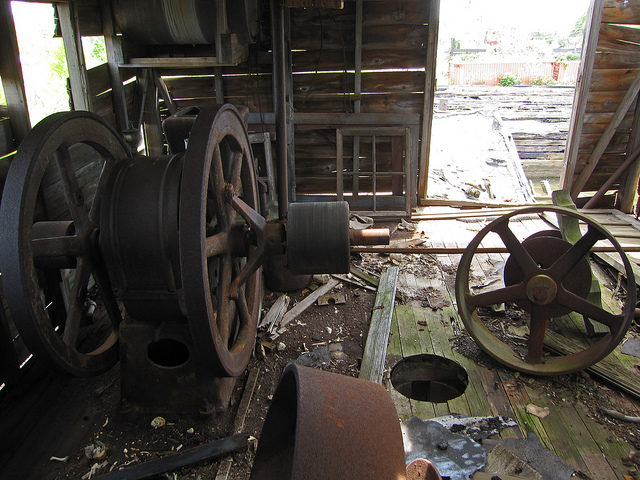
Next, there is the beautifully named ship Eldia. A gentle name for a 143.561 meters long steel freighter. Damaged after being blown ashore in East Orleans, Massachusetts on March 29, 1984, it was fixed by Donjon Iron and Metal Scrap Processing Facility. Later, because its owner ran short on finance, was returned to Arthur Kill to be scraped.
Even though it is a place pretty hard to reach and bejeweled with silent No Trespassing signs, it is still a spot that diverse types of people come to see. Though trespassing is illegal, tourists that have heard of this place travel some 20 kilometers by bus just so that they can be part of this decaying time capsule.
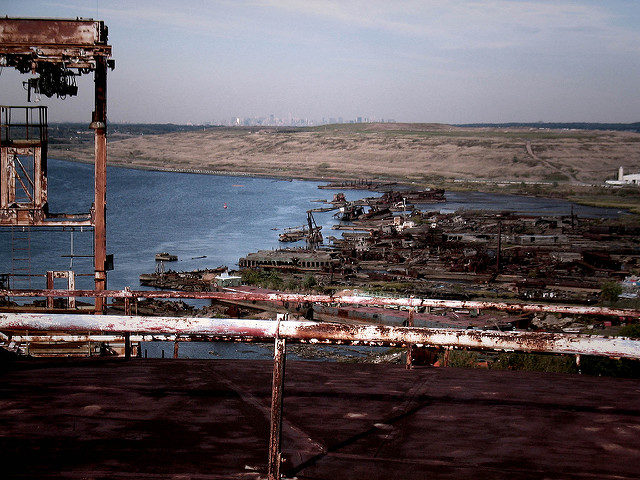
Ranging from marine historians to documentary makers, to photographers and artists, all the way to the indefatigable urban explorers. Even movie makers have come. Part of the movie Salt starring Angelina Jolie was filmed here.
Marine historians find this area exceptionally fascinating. They use boats or kayaks to paddle alongside the piles of metal exploring the marine world that developed over the years.
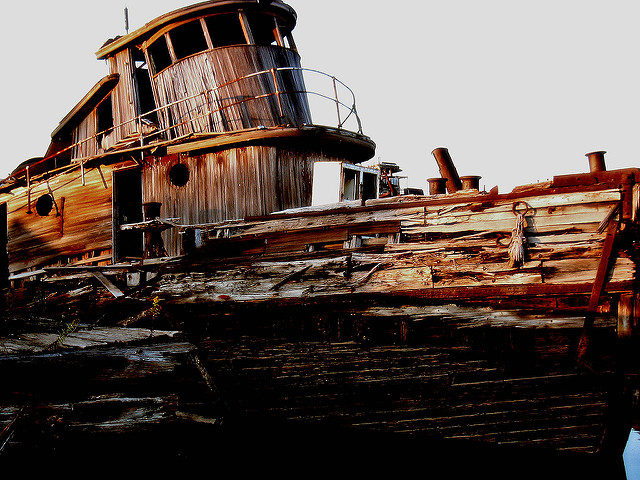
The time and work of this boat graveyard are perfectly depicted in the 32-minute documentary Graves of Arthur Kill. This documentary was filmed back in 2012, two years after the blockbuster Salt. The graveyard got so famous over the years, that even Instagram made a contest in which they gathered some the greatest photos made on these muddy waters.
Even the New York Times at one point called it the accidental marine museum.
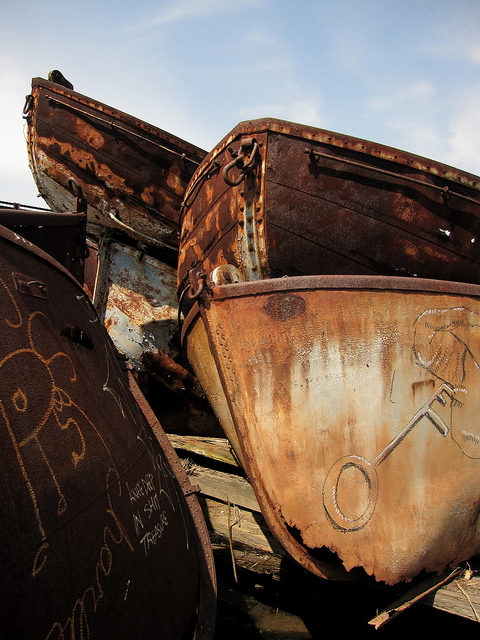
But almost nothing can stop the enduring thrill sicker. The official site of Donjon Recycling says the following:
We receive many inquiries from amateur and professional photographers and filmmakers requesting access to the graveyard from our property. Unfortunately, we are unable to grant such requests. Donjon Recycling is an operational scrap facility utilising heavy equipment, and safety regulations prohibit us from allowing photography of any kind.
Filmmakers interested in obtaining special permission may Contact the Donjon Recycling offices.
Thank you for your understanding.
